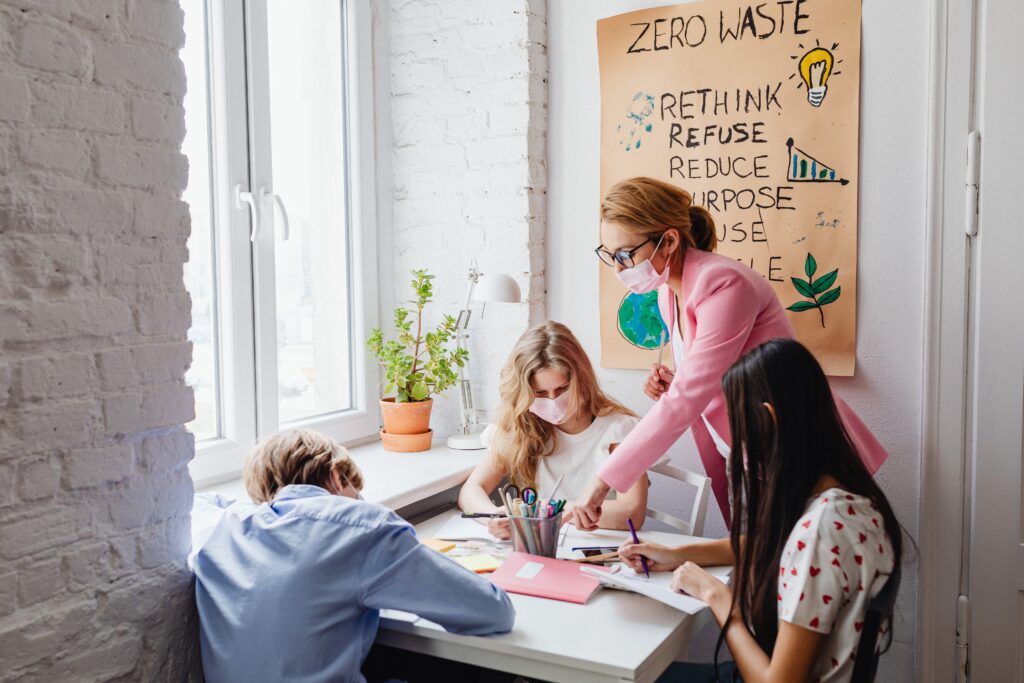Why New Environmental Standards Matter for Small Businesses.

Climate change can be an overused buzzword for some. However, it remains an urgent and complex issue that affects every aspect of our lives, including businesses of all sizes. While large corporations and multinational conglomerates may have greater resources to mitigate the risks of environmental changes, small businesses are often hit the hardest. This major industry analysis revealed that over 75% of emissions are from supplier activities and the end customers’ use of products. Small businesses offering products on Amazon face a considerable challenge in meeting its climate standards, as most of them work directly with suppliers. But how do these standards affect small businesses, and what can entrepreneurs do to adapt? Read on to find out.
The first and most obvious impact of climate standards on small businesses is the need to comply with new regulations. Depending on the industry, small businesses may need to update their equipment, adopt new technologies, or switch to cleaner energy sources. This can be a significant financial burden for businesses that already operate on tight margins. For example, According to this CNBC story, Amazon recently announced that it would be implementing a “climate change stress test” for its sellers and suppliers, which would measure their carbon footprint and encourage them to reduce emissions. While this is a laudable goal, it could place a strain on small businesses that may not have the resources to invest in greener practices.
Another impact of climate standards on small businesses is the changing consumer habits and preferences. As consumers become more aware of environmental issues, they may seek out products and services that align with their values. This can create opportunities for small businesses that specialize in sustainable and ethical practices, but it can also make businesses that have yet to prioritize those values struggle. Small businesses that fail to adapt to changing consumer demand may risk losing market share to competitors that are more attuned to sustainability trends.
A third way in which climate standards can affect small businesses is through access to financing and insurance. As climate-related risks increase, lenders and insurers may become more hesitant to provide small businesses with the capital and protection they need. A small business that uses significant energy to turn raw materials into finished products, for example, may find it difficult to secure insurance coverage in the face of increasing sustainability standards and the risk accrued by the financial institution. Similarly, lenders may require stricter environmental due diligence before approving a loan, which could make it harder for small businesses to access credit.
Ways Forward for Small Businesses
1. Sustainability as a Competitive Edge: Instead of viewing climate standards as mere obstacles, SMEs can turn them into a competitive edge. Consumers are increasingly eco-conscious and willing to support sustainable businesses. Your business can leverage this consumer sentiment to build trust and loyalty. Starting with sustainability in mind instead of a simply cost-first outlook will aid in future-proofing your firm from suture setbacks.
2. Adaptation and Innovation: Small businesses should embrace innovation to reduce their carbon footprint. This could involve adopting renewable energy sources, reducing waste, exploring circular economy models, and integrating sustainable practices into their core business strategies.
3. Collaborative Efforts: Collaborative action within the databases such as the Amazon ecosystem and with partners can help your business collectively address the climate challenge. Shared resources, knowledge, and best practices can lighten the burden of compliance and create a more supportive environment for both you and your industry.
4. Seek Financial Support: To combat the costs of sustainable production, governments and financial institutions often offer incentives and funding for sustainable initiatives. If needed, your business should explore grants, subsidies, and low-interest loans designed to support green projects.
Climate standards are not going away anytime soon, and small businesses will need to adapt to the changing landscape if they want to survive and thrive. While the new regulations and policies can be challenging to navigate, there are also opportunities for innovation, growth, and differentiation. Small businesses can benefit from aligning their mission and values with sustainability practices, investing in energy-efficient technologies, developing resilient supply chains, and finding creative financing solutions. By doing so, they can not only reduce their carbon footprint but also strengthen their long-term viability in a changing world. The key is to stay informed and proactive, rather than reactive, in the face of environmental challenges.
The Alliance to Save the American Dream is a non-profit organization dedicated to three core goals.
1. Develop an Ideas Factory to give small businesses and industries a centralized place to share innovative ideas that must be considered.
2. Build a unique Resources portal for small businesses to go to for answers or resources that address a wide range of issues or challenges.
3. Offer a new networking opportunity for small business owners to connect while also giving them a platform to share their own personal stories. For more information, visit savetheamericandream.
